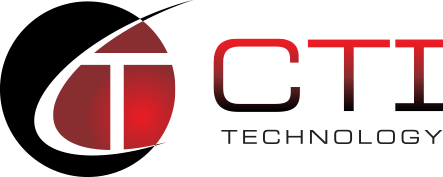AI Policy Template For Businesses Throughout Chicago
As we enter this exciting era of artificial intelligence, businesses must stay updated and adapt to the rapid changes in the landscape. Over the past year and a half, we’ve seen groundbreaking advancements in AI technologies, such as chat GPT, and Microsoft’s integration of Co-Pilot services into their flagship Microsoft 365 Suite. With these game-changing developments come significant industry concerns that must be proactively addressed, making the establishment of AI policies within organizations more vital than ever.
AI undoubtedly offers immense benefits for organizations adept at harnessing its power, but navigating the risks associated with AI is essential for success. Just as there are guidelines for social media usage, policies governing AI tools like chat GPT or Microsoft Co-Pilot are necessary. A well-crafted AI policy should incorporate elements such as the purpose of AI usage, the importance of human oversight, data security, and confidentiality measures, along with a commitment to ongoing learning and improvement in AI technologies. We’ve prepared a free sample AI policy for your use to jump-start your AI policy journey.
Key Takeaways
- The rapid expansion of AI in business requires clear policies and guidelines.
- An effective AI policy should cover the purpose of AI, human oversight, data security, and a commitment to learning and improvement.
- A free AI policy sample is available, providing a solid starting point for organizations to develop their own AI policies.
AI in Business
Over the last year and a half, artificial intelligence has noticeably transformed the business world. Innovations like chat GPT have gained traction, accompanied by experts’ concerns about AI’s potential consequences. A notable industry change includes integrating Microsoft’s co-pilot services into their Microsoft 365 Suite.
In the midst of AI’s rapid advancement, organizations must establish transparent guidelines and protocols regulating AI usage within their operations. The immense benefits of AI are clear, but it also presents risks that cannot be overlooked.
A comprehensive AI policy, similar to guidelines for social media usage, should be implemented within organizations. All employees must embrace these policies as they navigate AI tools like Chat GPT or Microsoft co-pilot.
Although AI policies will vary among organizations, the following standard components are often included:
- Purpose of AI usage: Clearly articulate the intended application of AI within the company.
- Human oversight: Stress the importance of human supervision to ensure responsible AI deployment.
- Data security and confidentiality: Implement necessary protocols for safeguarding sensitive data.
- Ongoing learning and improvement: Promote a commitment to continuous growth and enhancement in AI technologies.
To assist your organization in launching an AI policy, we’ve developed a sample that you can access for free on our website.
AI Technologies and Addressing Industry Worries
AI is rapidly transforming the business landscape with innovations such as Chat GPT and Microsoft’s integration of its co-pilot services into the Microsoft 365 Suite. However, alongside these advancements come potential risks we must be aware of. One essential aspect that organizations tend to overlook is the implementation of clear policies and guidelines for AI usage within their operations.
Similar to establishing policies for social media usage, it’s crucial to develop rules guiding the use of AI tools, such as Chat GPT or Microsoft co-pilot. While the content of an AI policy may vary according to each organization’s needs, some common components can serve as a starting point:
- Purpose of AI usage: Clearly define the objectives and situations in which AI tools should be utilized.
- Importance of human oversight: Emphasize the need for human involvement in AI-based decision-making and monitoring activities.
- Data security and confidentiality: Implement measures to secure sensitive data and maintain user privacy using AI tools.
- Commitment to continuous learning and improvement: Encourage an adaptive mindset focused on the advancement and responsible use of AI technologies.
Microsoft’s Co-Pilot Integration
Recently, we’ve seen AI technology, such as chat GPT, make significant advancements and find more applications in the business world. As a testament to this trend, Microsoft has incorporated Co-Pilot services into its Microsoft 365 Suite, marking a substantial change in the industry. AI integration continues to expand, but we must also acknowledge and address the accompanying risks.
A crucial aspect that organizations often neglect is the implementation of well-defined rules and guidelines to govern the use of AI in their operations. AI’s benefits are immense; however, we must also consider the risks. Just like social media usage policies, AI tools like Chat GPT or Microsoft Co-Pilot require a set of guidelines for employee compliance.
Organizations should develop AI policies tailored to their needs, but some common elements might include:
- Purpose of AI usage: Specify the intended use of AI within the organization.
- Human oversight importance: Emphasize the need for employee monitoring and intervention within AI-driven processes.
- Data security and confidentiality: Outline the measures to protect sensitive information using AI technology.
- Commitment to AI learning and improvement: Encourage continuous research and development for AI technologies in the organization.
The Imperative for AI Guidelines
As the world of artificial intelligence continues to evolve and reshape the business landscape, organizations must adapt and be proactive in addressing potential risks associated with AI. With the integration of groundbreaking technologies such as ChatGPT and Microsoft’s Co-pilot Services, it’s evident that AI is becoming an integral part of our daily operations.
Organizations need to implement clear and robust policies governing AI usage to reap the benefits of these advancements and minimize risks. Just as there are guidelines for social media usage, there is a need for rules and regulations for AI tools that all employees must adhere to.
Developing a comprehensive AI policy will involve considering your organization’s needs and priorities. However, there are a few standard components that should be included in most AI policies:
- The purpose of AI usage: Clearly define the objectives and desired outcomes that should be achieved through AI integration.
- The importance of human oversight: Emphasize that while AI tools can support and augment human capabilities, ultimate decision-making responsibility should still lie with humans.
- Data security and confidentiality measures: Address protecting sensitive information and the steps taken to ensure data privacy when using AI tools.
- A commitment to ongoing learning and improvement: Promote a culture of continuous learning and adaptation with AI technologies, ensuring that your organization stays up-to-date with the latest advancements.
Components of an AI Policy
Aims for Utilizing AI
It’s essential to outline the objectives behind using AI within our organization. By defining the purposes for AI usage, we can set clear expectations and align the utilization of AI technologies with our broader organizational goals.
The Role of Human Supervision
Human involvement remains critical when it comes to AI deployment. Having humans oversee and guide the application of AI tools ensures ethical practices, accuracy, and adherence to established policies.
Safeguarding Data Security
Data security measures are crucial in protecting sensitive information and maintaining user trust. Our AI policy should outline specific procedures and protocols to safeguard data during AI operations.
Upholding Confidentiality
Ensuring the confidentiality of sensitive and valuable data is a top priority for our organization. Our AI policy needs to address measures put in place to secure and protect confidential information and the users who share it with us.
Pursuit of Growth and Enhancement
An essential aspect of implementing AI tools is our commitment to continuous learning and improvement in AI technologies. Expanding our knowledge helps us utilize and integrate AI more effectively and responsibly within our organization.
Free AI Policy Sample
We’re excited to offer a complimentary AI policy sample to help your organization navigate the rapidly expanding world of artificial intelligence. Creating guidelines like those for social media usage is essential, tailored for AI tools such as Chat GPT or Microsoft Co-Pilot.
A well-structured AI policy usually encompasses elements such as:
- Purpose of AI usage: Outline the goals and reasons for implementing AI technology within your organization.
- Human oversight: Recognize the importance of human monitoring and intervention, including making final decisions supported by AI-generated insights.
- Data Security and Confidentiality: Describe the necessary measures to protect sensitive information and maintain data privacy using AI tools.
- Ongoing learning and improvement: Commit to ongoing professional development and staying informed on AI advancements and ethical considerations.
To access our free AI policy sample, find the download link on our website. Contact us if you need assistance setting up your organization’s AI policy.
Closing Remarks
As we immerse ourselves in the world of artificial intelligence, we must remain mindful of the potential risks of its adoption. To ensure our organizations thrive and maintain ethical practices, we must establish clear and comprehensive guidelines for AI technology usage.
Some key aspects to consider when crafting our AI policy include the goals for AI use, the significance of human supervision, and ensuring optimal data security. We should also focus on upholding confidentiality and fostering a culture of constant learning and progress within AI.
To support your organization in developing an effective AI policy, we’ve made a sample template available for free download on our website. By staying informed, diligent, and adaptable, we will be best equipped to navigate the rapidly-evolving landscape of artificial intelligence in business.
Keep in touch with us for more updates on technology trends and breakthroughs, and don’t hesitate to reach out if you’re seeking a trustworthy IT partner.
Why Is CTI Technology The Best Choice For IT Services In The Chicagoland Region?











